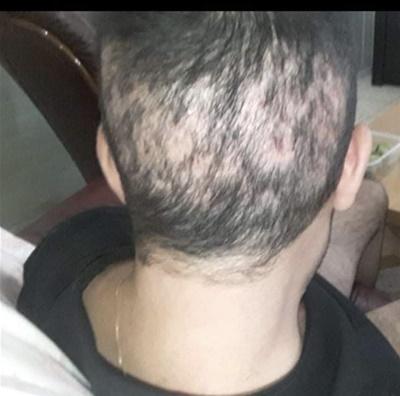Follicular Unit Extraction (FUE) has become the most popular method for surgical hair restoration. FUE works by removing individual follicular units one by one using a tiny surgical punch. The small punch creates micro-scars virtually undetectable to the average person. The FUE technique gained a lot of popularity over the last ten years. However, with the advent of this new technology comes a new set of complications and issues. In this article, we will be talking about overharvesting associated with FUE.
What is Overharvesting?
Overharvesting refers to the number of follicular units (grafts) extracted from the donor (back and sides of the scalp). Suppose a hair transplant surgeon extracts too many hair follicles from the patient's donor. In that case, that is 'overharvesting.' Overharvesting has become a real issue and concern with the emergence of black market hair mills.
These low-cost hair mills often charge a set price for 'unlimited grafts, ' meaning they will extract as many hair follicles as they possibly can in a day. Technicians extract grafts rapidly because they do multiple surgeries per day in these hair mills. Extracting grafts rapidly without rhyme or reason is the biggest reason why Overharvesting occurs.
How Do You Prevent Being Overharvested
Surgeon selection is vital. Quality hair restoration surgeons understand that they have to leave a hair follicle between each extraction. If surgeons extract grafts too closely and remove several follicular units within a square centimeter (cm2), the donor will be left with a patchy appearance. Avoid low-cost clinics where technicians perform the entire procedure without surgeon supervision.
Where Do You Find Quality Surgeons
One of the most popular online hair restoration communities is the Hair Restoration Network, a community created by and for patients. Thousands of hair transplant patients post their reviews on the Hair Restoration Network each year. The community reviews a surgeon's credentials, experience, and skill through looking at their results and reviews extensively. The vetting process takes days, with patients, consultants, and surgeons participating in the reviewing process. If the surgeon meets the strict and demanding criteria, they are approved and listed as a forum-approved surgeon.
What are the criteria?
Surgeons must be able to dense-pack follicular units with high growth rates consistently. In addition, surgeons must operate transparently, knowing that the community is constantly reviewing their work. If a surgeon does not deliver the expected results, they must offer support to the patient. In short, the community ensures that surgeons are held accountable and stand by the patient. Now, lists are starting points for research, no list is definitive or guarantees results, but it should be a starting point for research. To view the list of the physicians approved by the community, click here.
Conclusion
Not all surgeons are created equal. Skill, experience, talent vary widely, as do results. Overharvesting occurs because of surgical inadequacies. The only way to ensure you don't become overharvested is to ensure you select the right surgeon. If you cannot afford a quality surgeon, it's best not to get surgery. Bargain shopping for surgery is a sure way to become overharvested. That doesn't mean there aren't affordable surgeons, but they won't be the cheapest option available. Keep that in mind.

